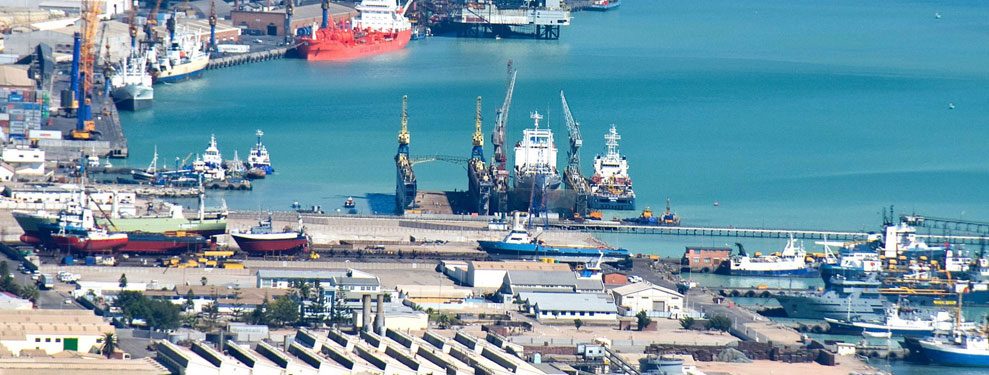“Private sector investments and partnerships in developing public infrastructure and the delivery of related public services because of public-private partnerships formations are envisaged to be a key building block in the economic progress of the country, ” said Namibia’s Minister of Finance Calle Schlettwein, a vocal and active advocate of public-private partnership, viewing them as stimulating investment with net economic benefits and efficiencies to Namibia that cannot be overemphasised.
The use of PPPs for infrastructure development has become a major part of the global solution to infrastructure development. They have allowed a contemporary variant of cooperation between governments and the economy of their countries, establishing purposeful joint business ventures to deliver more effective and efficient service delivery.
The public sector has been the main actor in service delivery and development activities in most African countries since the 1980’s, providing basic public goods but following the winds of change in the form of far-reaching social, political, and economic reforms. The role of the public sector in the development process has changed in many African countries, with it becoming clear that governments cannot meet the growing demand for services by acting alone. The role of the public sector, therefore, evolved into acting as a facilitator for private-led economic development and growth.
Conceptual Development
The Namibian government, finding its public funds under immense strain, has made steady progress towards a PPP agenda. The state has been working hard to speed up infrastructure delivery with private participation and forged a comprehensive PPP policy under the stewardship of the Ministry of Trade and Industry in September 2015. This includes the development of a PPP law and the establishment of a PPP committee, as well as a dedicated PPP unit under the Ministry of Finance. This unit has the capacity to draught PPP agreements and oversee projects from the construction phase through to the end, which often has long-term time horizons.
Sectors with existing projects which are privately funded are targeted, which include industries such as the energy sector – where several renewable energy generation facilities have already been developed and are in operation in areas like wind, solar and biomass projects; as well as the railway sector where potential PPP projects include investments in rolling stock, track installation or upgrading and for the development of affordable homes.
These are all earmarked as priority areas to leverage PPPs as an instrument for achieving social objectives that tap into alternative sources of finance and reduce an over-reliance on the national budget. “We need to acknowledge and embrace the dichotomy that through PPPs we can channel relatively expensive private capital towards developing projects that would serve the public at large. Thus, we target areas where affordability will be an important consideration,” said Calle Schlettwein.
According to the policy document drawn up by the Ministry of Trade and Industry, PPP projects, “will serve as an engine for achieving social and economic objectives of the Namibian government, such as job creation, pro-poor development, inequality reduction and the development of SMEs.”
These considerations will aim to guide project conceptualisation, design feasibility studies and value assessments, bid document preparation and the procurement stage, followed by close monitoring of outcomes during the contract management phase.
The PPP concept, which is comparatively new to Namibia, will also involve the transfer of project life-cycle risks to the private sector, with the focus of government institutions shifting from managing inputs to managing outcomes. This is based on three essential elements: a contractual arrangement, substantial risk transfer, and outcome-based financial rewards to the private sector.
It is expected also that benefits will accrue from the quality of services and the construction of infrastructure. Given that PPPs are to draw on upon the best available skills, knowledge and resources, they are expected to reduce infrastructure expenditure for government and generate efficiencies and cost-effectiveness, through infrastructure delivery and related services and specialist expertise and knowledge transfer.
“Through PPPs, we can leverage private sector finances to meet the development needs of our economy,” said Deputy Finance Minister Natangue Ithete last November at a PPP conference held in Namibia’s capital city Windhoek. “Public funds freed thanks to private investments in conducive infrastructure sectors, are then available for other priority areas on our development agenda. ”The PPP policy is intended to apply to central government, regional and local Namibian authorities as well as state-owned enterprises (SOEs) via their line Ministries.
Development Emphasis
The current National Development Plan (NDP4) and the Harambee Prosperity Plan both emphasise the importance of the PPP framework in ensuring the delivery of infrastructure in the country, with the Ministry of Finance as the key implementer of the PPP policy and the PPP Committee having an oversight role in the preparation, procurement and contract awarding of the projects. The PPP unit serves as the secretariat for the PPP Committee, who will scrutinise and vet the feasibility of projects and the procurement processes. The Committee handles review and approval at key stages in a project’s lifecycle and is the ultimate arbiter in the various stages up to final awarding of a project.
The forms of PPP arrangements envisaged are also diverse and include service contracts, lease contracts, and build-lease-transfer (BLT), also known as build-own-lease-transfer (BOLT) contracts. The PPP policy is also expected to dovetail with the New Equitable Economic Empowerment Framework (NEEEF) once revised and reworked to private-public acceptance.
The PPP Directorate has also had several consultations with Ministries, public enterprises, and other stakeholders to increase capacity building and inform them about PPP policy and structured training programs focussed on public officials. “The ultimate aim of the public-private partnership policy is to bring a flow of credible, well prepared PPP projects to the market to enhance Namibia’s development,” Saurabh Suneja, Director of Public-Private Partnerships at the Ministry of Finance, Namibia.
